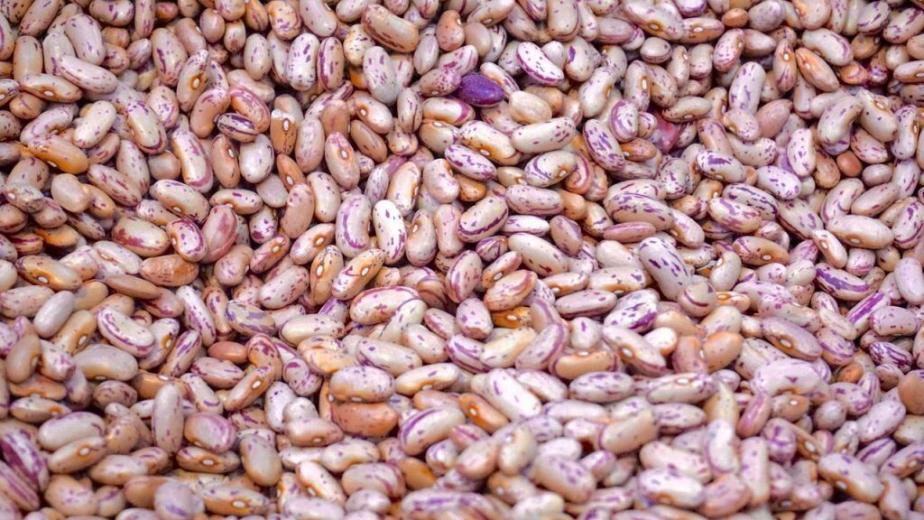Heal Your Child Summit – 2018

I am super excited to be able to share the following information with you! Our children are now sicker than we are – over 50% of the children in the United States has a chronic illness and over 45% of those have multiple illnesses! This MUST stop!
In order for that to happen parents must be equipped with information to turn their children’s health around. Which is what the Heal Your Child Summit 2018 is all about!!!
It is an honor to be a part of this wonderful movement to empower parents and equip them with ways to take charge of their child’s health. Connecting with Health Professionals, Researchers, Community Activists, and Thought Leaders from Around the World to Share Their Most Strategic Secrets and Resources to Parents of Children with Chronic Illness is at the core of my mission. Please join me and others who are on that journey to restore health in their child through natural methods. This is a FREE online summit with an abundance of resources, strategies and practical tips from holistic, natural and, functional perspectives.
HEAL YOUR CHILD – BODY, MIND, HEART, and SOUL
“Health is a state of complete physical, mental, and social well being, and not merely the absence of disease or infirmity.” – WHO
Imagine some of the world’s top experts on Chronic Illness coming together to discuss their #1 HEALING strategies. And not only are they gathering, but you have a VIP Invitation to this limited space event. By attending you are able to quickly and easily implement their strategies for Empowering yourself with strategies, resources, and evidence-based research to help you heal your child.
 Well, there is no need to imagine. This is exactly what’s happening September 17-21, 2018 at the HEAL YOUR CHILD SUMMIT. But don’t worry if you can’t make it to every live call. We’ll be recording every moment and taking notes.
Well, there is no need to imagine. This is exactly what’s happening September 17-21, 2018 at the HEAL YOUR CHILD SUMMIT. But don’t worry if you can’t make it to every live call. We’ll be recording every moment and taking notes.
I have to warn you though, the purpose of this Summit is not to discuss the latest greatest drug or medical intervention to manage your child’s chronic illness. We are NOT in the business of diagnosing, treating, or curing disease. We WILL NOT pursue a pill for every ill. The presenters in this summit are seekers of the truth and function as detectives to help you uncover and understand the ROOT CAUSES of your child’s chronic illness.
Be sure to tune in on Monday, September 17th where I will be presenting: Healing Your Microbiome – Pesky Bugs, or Cute Critters? Here I will delve into the foundation of creating a microbiome which promotes health and restoration along with strategies to uncover the root of an imbalanced GI tract. It will be a power-packed day as Dr. Ritamarie Loscalzo delves into Genetics and tackles the myths surrounding genetics: Destiny of Dis-Ease or Opportunity for Health and Prevention. 
You will also want to tune into my friend and functional medicine colleague Dr. Neil Paulvin as he provides insights on craniosacral therapy and opening up healing opportunities through removing obstructions with chiropractic manipulations. Every day is filled with great information, I am so excited to be sharing this with you and look forward to seeing you there!
Remember to help me spread the word!
www.healyourchildsummit.com
Celiac Disease and Fertility Problems
 [et_pb_section bb_built=”1″ admin_label=”section” transparent_background=”off” custom_padding=”0px|||” _builder_version=”3.0.85″][et_pb_row admin_label=”row” make_fullwidth=”off” use_custom_width=”off” width_unit=”on” use_custom_gutter=”off” custom_padding=”0px|||” custom_margin=”0px|||” allow_player_pause=”off” parallax=”off” parallax_method=”on” make_equal=”off” parallax_1=”off” parallax_method_1=”off” background_position=”top_left” background_repeat=”repeat” background_size=”initial”][et_pb_column type=”4_4″][et_pb_text background_layout=”light” text_orientation=”left” use_border_color=”off” border_color=”#ffffff” border_style=”solid” custom_margin=”0px|||” custom_padding=”0px|||” module_alignment=”left” background_position=”top_left” background_repeat=”repeat” background_size=”initial” _builder_version=”3.0.85″]
[et_pb_section bb_built=”1″ admin_label=”section” transparent_background=”off” custom_padding=”0px|||” _builder_version=”3.0.85″][et_pb_row admin_label=”row” make_fullwidth=”off” use_custom_width=”off” width_unit=”on” use_custom_gutter=”off” custom_padding=”0px|||” custom_margin=”0px|||” allow_player_pause=”off” parallax=”off” parallax_method=”on” make_equal=”off” parallax_1=”off” parallax_method_1=”off” background_position=”top_left” background_repeat=”repeat” background_size=”initial”][et_pb_column type=”4_4″][et_pb_text background_layout=”light” text_orientation=”left” use_border_color=”off” border_color=”#ffffff” border_style=”solid” custom_margin=”0px|||” custom_padding=”0px|||” module_alignment=”left” background_position=”top_left” background_repeat=”repeat” background_size=”initial” _builder_version=”3.0.85″]
If you’ve been trying to have a baby, celiac disease and fertility problems may be standing in your way. It may be hard to believe but celiac disease, which causes an allergy to gluten, can actually lead to fertility problems in both men and women.
The exact reasons aren’t totally clear, but scientists do have some ideas about why fertility and celiac are related. One of the most obvious problems is that celiac disease leads to malnutrition. Celiac disease causes your small intestine to be unable to absorb the nutrients you eat.
If your body isn’t getting the nutrition it needs to function properly, it can affect your hormone levels and your ability to produce and carry a child. This is true for both men and women because it can interfere with either system.
Often, women who have celiac disease have particular problems with their menstrual cycles. If you have celiac disease you may have abnormal periods – they may be absent for long periods of time or you may have problems with frequent bleeding.
Problems with your period indicate that you might not be ovulating regularly and that will interfere with your ability to conceive. If you’re not ovulating, there’s no chance you’ll be able to get pregnant.
In addition, women with celiac disease have a higher risk of having complications in their pregnancy. Those complications include threatened miscarriage (bleeding during pregnancy), actual miscarriage, and high blood pressure.
Pregnant women suffering from celiac also may have problems with anemia. These conditions can make it difficult to carry a pregnancy to term and can cause problems during labor and delivery that threaten both mother and child.
If you have celiac disease, it’s important to let your healthcare provider know when you’re trying to conceive. The good news is that by following a gluten-free diet you can actually reverse the inflammation caused by gluten and you can get your body in a healthy state.
You’ll have the best chances of having successful conception and a healthy pregnancy when you begin with a healthy body. That means that it’s best to have your celiac disease under control before attempting to get pregnant.
The best way to control celiac is through diet. You’ll need to eliminate gluten from the foods you eat. This can be difficult initially, but the improvement in your health condition is worth the effort.
It’s always best to work with your healthcare provider to make sure you receive the proper medical treatment along with your diet. In severe cases of celiac, medical intervention is required. Celiac disease and fertility problems can go hand-in-hand, but you can work to improve your chances of pregnancy.
[/et_pb_text][et_pb_image admin_label=”Autoimmune Blog Ad 1″ saved_tabs=”all” global_module=”2852″ src=”https://thefunctionalperspective.com/wp-content/uploads/2017/04/blog-ad850x200.jpg” show_in_lightbox=”off” url=”https://thefunctionalperspective.com/lm/autoimmune-diseases/” url_new_window=”on” use_overlay=”off” animation=”off” sticky=”off” align=”left” force_fullwidth=”off” always_center_on_mobile=”on” _builder_version=”3.0.85″ show_bottom_space=”on” /][et_pb_text _builder_version=”3.0.85″ background_layout=”light”] [social_warfare] [/et_pb_text][/et_pb_column][/et_pb_row][/et_pb_section]Foods That Can Help Boost Your Immune System
 [et_pb_section bb_built=”1″ admin_label=”section”][et_pb_row admin_label=”row” background_position=”top_left” background_repeat=”repeat” background_size=”initial”][et_pb_column type=”4_4″][et_pb_text background_position=”top_left” background_repeat=”repeat” background_size=”initial” _builder_version=”3.2.1″]
[et_pb_section bb_built=”1″ admin_label=”section”][et_pb_row admin_label=”row” background_position=”top_left” background_repeat=”repeat” background_size=”initial”][et_pb_column type=”4_4″][et_pb_text background_position=”top_left” background_repeat=”repeat” background_size=”initial” _builder_version=”3.2.1″]
A number of foods have been found to benefit the immune system in a range of ways. One group of foods is thought to reduce inflammation in the body, leading to less wear and tear on all your bodily systems, including your immune system. Adding anti-inflammatory foods is thought to prevent disease, or reduce the more severe symptoms in those who are suffering from certain health issues, such as arthritis and inflammatory bowel disease.
Another group of foods has been found to trigger inflammation, so avoiding these foods can also provide relief from a range of troublesome symptoms, including allergic reactions such as eczema, asthma, gluten sensitivity and lactose intolerance. These allergies are obvious examples of how inflammation can affect anyone’s health. Avoiding inflammatory foods has shown clear benefits in relation to heart disease and all forms of arthritis, particularly rheumatoid arthritis (RA).
The third group of foods that can boost the immune system to prevent disease and enhance health are known as antioxidants. The normal wear and tear on our bodies every day as a result of stress, the environment, unhealthy foods we eat, smoking cigarettes, and so on, is called oxidative stress. It is thought to be a major cause of aging in the body.
Antioxidants are so named because they combat oxidative stress, thus decreasing the wear and tear on the body and reducing the effects of aging. Some antioxidants are so powerful, they have even been associated with cancer prevention.
Eating more anti-inflammatory foods while cutting back on inflammatory ones, and adding delicious antioxidants to your diet, is the best way to boost your immune system, reduce the effects of aging, and prevent disease. So, which are the best foods to eat, which are the best to avoid, and which foods are the best sources of antioxidants? We will list the top 10 for each category below.
Top 10 to Eat, to Reduce Inflammation
1-Salmon and Other Fatty Fish with Omega-3s
2-Probiotics, found in cultured foods like yogurt and kefir
3-Olive Oil
4-Sour Cherries
5-Walnuts and other tree nuts
6-Peppers
7-Ginger
8-Turmeric
9-Green leafy vegetables and cruciferous (pronounced CREW-sif-er-us) vegetables like broccoli and bok choy (Chinese cabbage)
10-Berries such as blueberries
Top 10 to Avoid If You Wish to Reduce Inflammation
1-Sugar
2-Salt
3-Standard Cooking Oils
4-Trans fats
5-Red Meat
6-Processed Meats/cold Cuts
7-Refined Carbohydrates
8-Artificial Sweeteners and Flavorings, such as aspartame and saccharin; Monosodium Glutamate (MSG)
9-Alcohol
10-Dairy Products
Top 10 Foods with the Highest Level of Antioxidants
1-Small red beans
2-Blueberries, wild
3-Red kidney beans
4-Pinto beans
5-Blueberries, cultivated
6-Cranberries
7-Artichokes
8-Blackberries
9-Raisins
10-Raspberries
It may seem overwhelming at first to make changes to your diet, especially if many of your favorites are on the foods to avoid list. Fortunately, a little effort can go a long way towards improving your immune system if you make healthy substitutions.
For example, if you love sweet, sugary foods, use more fruit to curb your cravings. Blueberries and raspberries can be eaten fresh or cooked as part of a healthy dessert. In our house we buy them frozen when they are on sale in the supermarket and eat them frozen in place of ice cream or another more fattening dessert. We add fresh ones to a range of recipes, from fruit salad to interesting sauces and rice pilafs.
If you are a meat eater, eating fish for 2 meals a week and beans such as the antioxidant-rich red kidney beans or pintos is easy and tasty too. Have fun looking up new recipes and exploring cuisines from around the world. For example, these beans are perfect for Mexican or Tex-Mex cookery. Many of the foods on the anti-inflammatory list are ideal for Chinese or Indian recipes.
Use these three lists to boost your immune system, and see how you can eat better than ever while fighting disease.
[/et_pb_text][et_pb_image admin_label=”Autoimmune Blog Ad 1″ saved_tabs=”all” src=”https://thefunctionalperspective.com/wp-content/uploads/leadmagnets/LM-blog-autoimmunity2.jpg” show_in_lightbox=”off” url=”https://thefunctionalperspective.com/lm/hashimotos-disease” url_new_window=”off” use_overlay=”off” animation=”off” sticky=”off” align=”left” force_fullwidth=”off” always_center_on_mobile=”on” use_border_color=”off” border_color=”#ffffff” border_style=”solid” global_module=”2852″ animation_style=”none” animation_duration=”1000ms” animation_intensity_slide=”50%” show_bottom_space=”on” /][et_pb_text _builder_version=”3.2.1″] [social_warfare] [/et_pb_text][/et_pb_column][/et_pb_row][/et_pb_section]How Probiotics Can Help Your Immune System
 [et_pb_section bb_built=”1″ admin_label=”section”][et_pb_row admin_label=”row” background_position=”top_left” background_repeat=”repeat” background_size=”initial”][et_pb_column type=”4_4″][et_pb_text background_position=”top_left” background_repeat=”repeat” background_size=”initial”]
[et_pb_section bb_built=”1″ admin_label=”section”][et_pb_row admin_label=”row” background_position=”top_left” background_repeat=”repeat” background_size=”initial”][et_pb_column type=”4_4″][et_pb_text background_position=”top_left” background_repeat=”repeat” background_size=”initial”]
By now, almost everyone has heard of probiotics, the active cultures in a range of dairy products such as yogurt, some cheeses and kefir, and in fermented foods such as miso, kimchi and sauerkraut. Most of these are tasty additions to our diet that can also help improve our overall digestive health. But can they also boost the immune system?
Studies have shown that adding probiotics to your diet conveys a range of benefits for people of all ages, as well as unborn children and those who are nursing. Some of the most commonly studied strains promote T cells and the so-called Killer cells. Some of the immune cells triggered also appear to have cancer-fighting properties.
Probiotics taken by women during pregnancy appear to affect the immune system of the unborn infant. Taken in childhood, probiotics appear to help young children avoid immune-mediated diseases such as asthma, eczema, colds, and type 1 diabetes.
The effects of probiotics are well-documented in relation to improving digestive health in a number of ways. Probiotics can balance the effects of antibiotics, which are taken in order to rid the body of bacteria.
Antibiotics can be helpful, but unfortunately they are not selective; they kill both harmful and helpful bacteria at the same time. Probiotics can add back the helpful bacteria and also boost the level of immune cells in the mucous membranes of the intestines.
In one study on probiotics, immune function, infection and inflammation in the body, probiotics stimulated a range of antibodies. Probiotics such as lactobacilli and bifidobacteria was found in children to reduce the incidence and duration of diarrhea. They can also reduce the risk of travelers’ diarrhea in adults.
The effect of may benefit children and adults with irritable bowel syndrome and adults with ulcerative colitis; studies with reference to probiotics’ benefits in relation to Crohn’s Disease are not clear as of yet. Probiotics have little effect in rheumatoid arthritis, but they can help with dermatitis and other allergic reactions.
Many people who are lactose intolerant might think they have to miss out on probiotics because they are so commonly found in dairy products. The good news is that fermented foods such as miso, tempeh (fermented soy) and sauerkraut can all add healthy probiotics to your diet.
If you have been ill lately and taking antibiotics, add some probiotics to your diet and see what a difference they can make to your health.
[/et_pb_text][et_pb_image admin_label=”Autoimmune Blog Ad 1″ saved_tabs=”all” src=”https://thefunctionalperspective.com/wp-content/uploads/leadmagnets/LM-blog-autoimmunity2.jpg” show_in_lightbox=”off” url=”https://thefunctionalperspective.com/lm/hashimotos-disease” url_new_window=”off” use_overlay=”off” animation=”off” sticky=”off” align=”left” force_fullwidth=”off” always_center_on_mobile=”on” use_border_color=”off” border_color=”#ffffff” border_style=”solid” global_module=”2852″ /][et_pb_text _builder_version=”3.0.85″ background_layout=”light”] [social_warfare] [/et_pb_text][/et_pb_column][/et_pb_row][/et_pb_section]Myths and Facts About Boosting Your Immune System
 [et_pb_section bb_built=”1″ admin_label=”section”][et_pb_row admin_label=”row” background_position=”top_left” background_repeat=”repeat” background_size=”initial”][et_pb_column type=”4_4″][et_pb_text background_position=”top_left” background_repeat=”repeat” background_size=”initial”]
[et_pb_section bb_built=”1″ admin_label=”section”][et_pb_row admin_label=”row” background_position=”top_left” background_repeat=”repeat” background_size=”initial”][et_pb_column type=”4_4″][et_pb_text background_position=”top_left” background_repeat=”repeat” background_size=”initial”]
There are a lot of theories on how to boost the immune system to ward off diseases, particularly in reference to cold and flu season, when people are most concerned with avoiding illness when everyone around them seems to be sick.
But is there any truth in these theories? Let’s look at a few of the most common myths about your immune system, and the facts you need to stay healthy all year round. Are they true or false?
Eating more fruits and vegetables can keep your immune system strong.
True. It is not simply an old wives’ tale that you should eat your fruits and veggies. Studies have shown that people who eat them regularly tend to be healthier than those who do not. They offer a range of nutrients that can help your immune system fight viruses and bacteria. Try to eat a rainbow every day in order to consume a variety of antioxidants, which help fight disease, and phytochemicals, plant-based nutrients.
Vitamins and supplements can help ward off disease and make you feel better faster.
False. A good daily multivitamin can help fill in any gaps in an otherwise healthy diet, but it is no substitute for high-quality nutrition from a range of all-natural foods. Many people take high doses of Vitamin C to ward off colds. However, this is not really of great benefit because Vitamin C is water-soluble, which means the body cannot store it and it is eliminated from the body through the urine. Vitamin A is important to the immune system, but it is fat soluble, which means it can be stored in the body. Too much, however, can lead to Vitamin A toxicity.
Many companies are now selling cold prevention remedies with zinc in them, which promise to ward off colds, or relieve symptoms more rapidly. Many of them are used in the nostrils. While some of these products have been shown to have some benefit in warding off colds, they have also been shown to cause potentially permanent loss of smell. Plus, not all colds and flu enter the body through the nose.
Getting enough sleep can boost your immune system.
True. There’s a strong link between sleep and a healthy immune system. The main point to remember is that it should be high-quality sleep, that is, sleep deep enough to offer the body and mind refreshment and healing. Most studies agree that the average adult need 8 hours a night. However, recent studies have also shown that sleeping too much can have a negative effect on your health.
Occasional insomnia should not be an issue, but if it becomes chronic, you should take steps to improve the quality and duration of your sleep. Otherwise, sleep deprivation can lead to you feeling run down, leaving your immune system weakened and you vulnerable to disease. Get into a good sleep routine of regular bedtimes and rising times, and see what a difference it can make to your health.
Covering your mouth when you cough can keep germs at bay.
False. This can help you stop the spread of illness, but do little to help you ward off illness unless everyone in your household and immediate environment does the same. Don’t forget that viruses like cold and flu germs can also survive on a range of surfaces such as doorknobs, phones, countertops and more. Wash your hands often and avoid touching your face, especially nose, mouth and eyes.
A positive mindset can boost your immune system.
True. A good outlook may be good for your health. One study of law students showed that their immune system was directly affected by their thoughts about their studies. If they felt things were going well, they had a better immune system. When they were worried, their immune system slowed. Therefore, looking on the bright side is not just good for you mental health, but your physical health as well.
Now that you’ve separated myth from fact in relation to your immune system, use what you’ve learned really works to help strengthen yours to ward off disease.
[/et_pb_text][et_pb_image admin_label=”Autoimmune Blog Ad 1″ saved_tabs=”all” src=”https://thefunctionalperspective.com/wp-content/uploads/leadmagnets/LM-blog-autoimmunity2.jpg” show_in_lightbox=”off” url=”https://thefunctionalperspective.com/lm/hashimotos-disease” url_new_window=”off” use_overlay=”off” animation=”off” sticky=”off” align=”left” force_fullwidth=”off” always_center_on_mobile=”on” use_border_color=”off” border_color=”#ffffff” border_style=”solid” global_module=”2852″ /][et_pb_text _builder_version=”3.0.85″ background_layout=”light”] [social_warfare] [/et_pb_text][/et_pb_column][/et_pb_row][/et_pb_section]New Link Found Between the Brain and Your Immune System
 [et_pb_section bb_built=”1″ admin_label=”section”][et_pb_row admin_label=”row” background_position=”top_left” background_repeat=”repeat” background_size=”initial”][et_pb_column type=”4_4″][et_pb_text background_position=”top_left” background_repeat=”repeat” background_size=”initial”]
[et_pb_section bb_built=”1″ admin_label=”section”][et_pb_row admin_label=”row” background_position=”top_left” background_repeat=”repeat” background_size=”initial”][et_pb_column type=”4_4″][et_pb_text background_position=”top_left” background_repeat=”repeat” background_size=”initial”]
A new study has just revealed a startling hidden connection between the brain and the immune system. Researchers always assumed that there was no lymph system in the brain. Now they have discovered lymphatic pathways hidden deep inside the brain that can help explain how the brain works with the immune system, which in turn protects the brain,
The lymph system is a network of lymph nodes, ducts, vessels and organs which move lymph from the tissues into the bloodstream. Lymph is a whitish fluid made up of lymphocytes, the cells that attack bacteria in the body, and fluid from the intestines, called chyle (pronounced KYLE), which contains proteins and fats that also help ward off diseases.
The most obvious manifestation of your lymph system is when you get swollen glands in your neck when you become sick with a cold or the flu. They swell up as they gather the resources to fight infection. Lymph nodes also filter harmful cells such as bacteria and cancer cells to stop the spread of disease.
Scientists knew that the brain helped control the immune system, but were not sure how the brain was protected by the immune system until now. The discovery is key because it opens the gateway to a new understanding of inflammation in the brain and body as a whole. It might also reveal the reasons for neurodegenerative disorders such as autism, multiple sclerosis (MS), Alzheimer’s, and other such diseases, offering new hope in the quest to combat illness and the effects of aging on the brain.
Neurological diseases like MS and Alzheimer’s have long been linked to changes in immune system function. Alzheimer’s, for example, is linked with a large build-up of proteins in the brain called amyloid plaques. Mood disorders have also been linked to autoimmune disorders of the digestive tract such as inflammatory bowel diseases (IBD), including Crohn’s disease and inflammatory bowel syndrome (IBS).
It wasn’t always clear how such connections occurred, but now both a gut-brain connection and a pathway from your immune system into your brain have been uncovered. Chyle from the intestines as part of the lymph system therefore has a direct connection to the brain. This means that any imbalance in the intestines has the potential to negatively impact the brain.
Since the lymph system affects every part of the body, including the brain, it is important to do all you can to boost your immune system. The mind-body connection is now better understood and demonstrates that you are what you eat. It also shows how your mood can affect your immune system, and vice versa. Take care of your immune system, and it will take care of you, and your brain, to combat the effects of aging.
[/et_pb_text][et_pb_image admin_label=”Autoimmune Blog Ad 2″ saved_tabs=”all” global_module=”2853″ src=”https://thefunctionalperspective.com/wp-content/uploads/2017/04/blog-ad850x200-1.jpg” show_in_lightbox=”off” url=”https://thefunctionalperspective.com/lm/foods-autoimmune-diseases” url_new_window=”on” use_overlay=”off” animation=”off” sticky=”off” align=”left” force_fullwidth=”off” always_center_on_mobile=”on” _builder_version=”3.0.85″ show_bottom_space=”on” animation_direction=”off” /][et_pb_text _builder_version=”3.0.85″ background_layout=”light”] [social_warfare] [/et_pb_text][/et_pb_column][/et_pb_row][/et_pb_section]Stress and Your Immune System
[et_pb_section bb_built=”1″ admin_label=”section”][et_pb_row admin_label=”row” background_position=”top_left” background_repeat=”repeat” background_size=”initial”][et_pb_column type=”4_4″][et_pb_text background_position=”top_left” background_repeat=”repeat” background_size=”initial”]Stress is a normal part of modern daily life, but most people are not aware of the negative consequences of stress on their health–until it is too late. Some people are able to cope with stress better than others, while others take practical steps to reduce their stress each day to diminish the wear and tear on their bodies and minds.
However, most of us are not aware of just how much stress is harming our health until we are diagnosed with a serious illness such as heart disease and then told we need to make drastic changes to our lifestyle if we wish to live longer.
So what exactly is stress? Stress is the body and mind’s response to any unusual event or situation which challenges us and makes us feel under pressure in some way. Stress provides the body with a burst of energy in the form of adrenaline, the “fight or flight” response that is part of human nature.
People either run away from the thing that stresses them, or they turn and try to deal with it in a variety of ways, some of which will be more successful strategies than others.
Our life is stressful from the moment we are born. There is the stress of birth, of feeling hunger, or needing our diaper changed. At school, there is the stress of performing well on exams, in presentations in front of the class, the school play, or on the school sports team. In our university years, there are the stresses of needing to maintain a good enough GPA to stay in school, or perhaps even get a scholarship or acceptance to grad school. Then there are social stresses, dating, relationships, friendships, peer pressure, and more.
As adults outside of school, there is the stress of whether or not we will find a job. If we don’t, there is the stress of trying to make ends meet. Even if we do manage to get a job, there is the stress of trying to keep it, let alone try to get a raise, promotion, and so on. Even happy occasions such as a new job, wedding, baby or home can trigger stress in the body.
Most of us work very hard and ‘burn the candle at both ends’ in order to try to keep up with all the demands on our time every day. This can lead to a lack of sleep and of ‘downtime’ or relaxation to help recharge the body and mind. The lack of rest and downtime can in turn lead to a weakened immune system.
A lack of sleep has been shown to have the same effects on the immune system as stress. Stress in turn can interfere with one’s ability to fall asleep and stay asleep. This in turn can create a vicious cycle of even more stress through sleep deprivation, which can leave your immune system vulnerable and open to attack.
If you’ve been acting like a workaholic, not getting enough sleep, and not taking time out for relaxation, it’s time to get your stress under control. Above all, you need to avoid burning out and damaging your immune system so much that it triggers excessive inflammation, since inflammation has been implicated in many medical conditions, such as arthritis, diabetes and certain forms of cancer.
There are many ways to reduce stress effectively, from yoga to meditation, tai chi to a warm, relaxing bath, a good night’s sleep to spending quality time with friends and family. If you have been overworking, it’s time to make some new appointments on your calendar with yourself in order to reduce stress, add exercise and sleep to your daily routine, and care better for yourself even as you boost your immune system.
[/et_pb_text][et_pb_image admin_label=”Autoimmune Blog Ad 2″ saved_tabs=”all” src=”https://thefunctionalperspective.com/wp-content/uploads/leadmagnets/LM-blog-autoimmunity1.jpg” show_in_lightbox=”off” url=”https://thefunctionalperspective.com/lm/foods-autoimmune-diseases” url_new_window=”off” use_overlay=”off” animation=”off” sticky=”off” align=”left” force_fullwidth=”off” always_center_on_mobile=”on” use_border_color=”off” border_color=”#ffffff” border_style=”solid” global_module=”2853″ /][et_pb_text _builder_version=”3.0.85″ background_layout=”light”] [social_warfare] [/et_pb_text][/et_pb_column][/et_pb_row][/et_pb_section]Success Strategies for Boosting Your Immune System
 [et_pb_section bb_built=”1″ admin_label=”section”][et_pb_row admin_label=”row” background_position=”top_left” background_repeat=”repeat” background_size=”initial”][et_pb_column type=”4_4″][et_pb_text background_position=”top_left” background_repeat=”repeat” background_size=”initial”]
[et_pb_section bb_built=”1″ admin_label=”section”][et_pb_row admin_label=”row” background_position=”top_left” background_repeat=”repeat” background_size=”initial”][et_pb_column type=”4_4″][et_pb_text background_position=”top_left” background_repeat=”repeat” background_size=”initial”]
Many over the counter products, vitamins and supplements claim to help improve your health, but the best strategies for boosting your immune system involve a number of simple strategies anyone can follow through with. Some of the best success strategies to boost your immune system are:
+Eating a healthy diet
+Losing weight if you are carrying extra pounds
+Exercising regularly
+Getting more sleep
+Decreasing your-stress levels
+Making time for yourself
+Being sociable with friends and family
+Quitting smoking
+Avoiding taking too many antibiotics
+Cutting down on your alcohol consumption
Let’s look at each of these success strategies in turn.
We are what we eat, so a healthy diet can go a long way to preserving our health. Eating plenty of fresh fruits and vegetables offers a range of nutrients and antioxidants as well, powerful disease-fighting molecules found in certain foods such a berries, legumes and apples. Eating a rainbow every day will help you achieve a balanced diet, and the fiber and water in these foods will also help you feel fuller for longer, which in turn can help with weight loss.
If you are carrying extra weight, turn to more natural foods to help slim down. Don’t rely on supplements or packaged diet foods, but rather, fresh fruits and vegetables, lean protein, and smaller portions.
Regular exercise can also help you achieve your weight loss goals, and boost your immunity too. Exercise improves digestion and helps eliminate toxins from the body. It also stimulates circulation, including not only the blood but the lymphatic system, which helps the body ward off illness.
Getting more sleep can help boost the immune system, especially if it is high-quality, deep, restorative sleep. If you’re feeling stressed, it can be difficult to fall asleep and/or stay asleep. Stress reduction strategies such as meditation can help lower your stress levels and improve your quality of sleep.
You can also decrease your stress by making more time for yourself to do some of the things you enjoy. This can include hobbies, time at the gym getting more exercise, or going for long walks. It should also include making time for the relationships that are important to you by spending quality time with friends and family. Loneliness and feelings of isolation can make you feel run down; surrounding yourself with positive people can help boost your immune system.
By now we all know about the negative effects of smoking on the body, especially the immune system. It scorches away the cilia, the little hairs that line the nostrils and nasal passages, for example, making it far easier for germs to get into your body.
Many people turn to a range of pills in an attempt to boost their health, and when used correctly, they may be beneficial. The flipside is that excessive use can cause harm. In particular, antibiotics can damage your immune system as they kill off both helpful and harmful bacteria. They do not help against colds and flu, so do not ask for a prescription from your doctor in the hope you will get better faster.
If you do have to take an antibiotic, take it EXACTLY as prescribed. Once you have finished the full course of treatment, try to get your system back in balance by consuming probiotics such as yogurt, cheese, miso or sauerkraut.
Finally, if you consume a lot of alcohol, especially in an attempt to reduce stress, try cutting down. Alcohol has many negative effects on the body, suppressing the immune system on the one hand and increasing inflammation on the other.
Adopt these simple success strategies to boost your immune system and see what a difference they can make to your health.
[/et_pb_text][et_pb_image admin_label=”Autoimmune Blog Ad 2″ saved_tabs=”all” src=”https://thefunctionalperspective.com/wp-content/uploads/leadmagnets/LM-blog-autoimmunity1.jpg” show_in_lightbox=”off” url=”https://thefunctionalperspective.com/lm/foods-autoimmune-diseases” url_new_window=”off” use_overlay=”off” animation=”off” sticky=”off” align=”left” force_fullwidth=”off” always_center_on_mobile=”on” use_border_color=”off” border_color=”#ffffff” border_style=”solid” global_module=”2853″ /][et_pb_text _builder_version=”3.0.85″ background_layout=”light”] [social_warfare] [/et_pb_text][/et_pb_column][/et_pb_row][/et_pb_section]The Effect of Alcohol on Your Immune System
 [et_pb_section bb_built=”1″ admin_label=”section”][et_pb_row admin_label=”row” background_position=”top_left” background_repeat=”repeat” background_size=”initial”][et_pb_column type=”4_4″][et_pb_text background_layout=”light” text_orientation=”left” use_border_color=”off” border_color=”#ffffff” border_style=”solid” module_alignment=”left” background_position=”top_left” background_repeat=”repeat” background_size=”initial”]
[et_pb_section bb_built=”1″ admin_label=”section”][et_pb_row admin_label=”row” background_position=”top_left” background_repeat=”repeat” background_size=”initial”][et_pb_column type=”4_4″][et_pb_text background_layout=”light” text_orientation=”left” use_border_color=”off” border_color=”#ffffff” border_style=”solid” module_alignment=”left” background_position=”top_left” background_repeat=”repeat” background_size=”initial”]
Alcohol is a prevalent drug of choice in Western society, one that many people turn to in order to relieve stress, relax, and ‘enjoy themselves’. However, recent studies are starting to give us a clearer picture of just how harmful alcoholic beverages can be to our overall health.
In particular, ‘binge drinking’ is on the rise in the US and around the world. The National Institute on Alcohol Abuse and Alcoholism (NIAAA) defines binge drinking as a pattern of drinking alcoholic beverages rapidly that brings blood alcohol concentration (BAC) levels to 0.08 g/dL. This typically occurs after 4 drinks for women and 5 drinks for men—in about 2 hours.
A small but significant study published in early 2015 regarding binge drinkers demonstrated both a highly pro-inflammatory response 20 minutes after the alcohol was consumed, followed by an anti-inflammatory response that reduced the activity of several important disease-fighting cells in the immune system.
According to the Centers for Disease Control and Prevention (CDC), one in six U.S. adults binge drinks about four times a month, consuming about eight drinks per binge. Many might assume that binge drinking is more common among young adults aged 18–34 years. However, one alarming statistic that has emerged is binge drinkers aged 65 years and older binge drink more often, at an average of five to six times a month.
Approximately 92{0af7829aa7c92fa2d438546a4f8732e509b4b47adbb4a9c0a81907a3e637def5} of U.S. adults who drink excessively report binge drinking in the 30 days prior to taking the survey. Although college students commonly binge drink, 70{0af7829aa7c92fa2d438546a4f8732e509b4b47adbb4a9c0a81907a3e637def5} of binge drinking episodes involve adults age 26 years and older. Binge drinking is more common among those with household incomes of $75,000 or more than among those with lower incomes. The prevalence of binge drinking among men is twice that of women.
These statistics give us a clear image of a stressed businessman or older person commonly binge drinking attempting to escape from it all or ‘drown their sorrows’.
Alcohol generally has negative effects on the body when indulged in over time, but binge drinking is particularly associated with a range of health issues such as alcohol poisoning, high blood pressure, stroke, liver disease and neurological damage.
The NIAAA has linked alcohol-related liver issues to auto-immune disorders, with the body attacking itself due to what the immune system perceives as a threat. They have also linked even moderate alcohol consumption to pneumonia, tuberculosis, HIV, Hepatitis B and C, other serious infections, and kidney disease. They also suggest that alcohol can affect your white blood cells, brain cells, and DNA.
One glass of red wine occasionally as part of the Mediterranean diet is considered to have heart healthy benefits, but the effects of large amounts of strong alcohol on your body and immune system is not one you should ignore if you wish to maintain optimal health no matter what your age.
[/et_pb_text][et_pb_image admin_label=”Autoimmune Blog Ad 2″ saved_tabs=”all” global_module=”2853″ src=”https://thefunctionalperspective.com/wp-content/uploads/2017/04/Hashimoto.jpg” show_in_lightbox=”off” url=”https://thefunctionalperspective.com/lm/foods-autoimmune-diseases” url_new_window=”off” use_overlay=”off” animation=”off” sticky=”off” align=”left” force_fullwidth=”off” always_center_on_mobile=”on” use_border_color=”off” border_color=”#ffffff” border_style=”solid” /][et_pb_text _builder_version=”3.0.85″ background_layout=”light”] [social_warfare] [/et_pb_text][/et_pb_column][/et_pb_row][/et_pb_section]Weight Loss and Your Immune System
 [et_pb_section bb_built=”1″ admin_label=”section”][et_pb_row admin_label=”row” background_position=”top_left” background_repeat=”repeat” background_size=”initial”][et_pb_column type=”4_4″][et_pb_text background_position=”top_left” background_repeat=”repeat” background_size=”initial”]
[et_pb_section bb_built=”1″ admin_label=”section”][et_pb_row admin_label=”row” background_position=”top_left” background_repeat=”repeat” background_size=”initial”][et_pb_column type=”4_4″][et_pb_text background_position=”top_left” background_repeat=”repeat” background_size=”initial”]
If you are overweight or obese, you are not alone. But what you might not know is just how bad being overweight is for the immune system. The first reason is that the fat we hate on our belly, butt and thighs is not just ugly flab. Scientists believe that excess fat in the body also releases a range of potentially toxic substances which can leave you open to illness, or even trigger it.
The second main reason being overweight is bad is that toxic substances and chemicals we consume can also be stored in fatty tissue, making it doubly dangerous. These toxins might even accumulate over time, causing serious damage to the body.
A third reason is that body fat damages our metabolism, slowing it down, thus making it even harder for you to lose weight. Exercising to build muscle will reduce your overall percentage of body fat, and thus the number of toxins in your body as you increase your metabolism.
Lean muscle burns the calories you consume much more efficiently, leading to weight loss and healthy weight maintenance once you reach your weight loss goal. Yoga, tai chi, light weights, and resistance bands can all help you build lean muscle without looking like a body builder.
Another important reason why being overweight is so dangerous is that it is now being described as a persistent low level of chronic inflammation in the body. Therefore, doing all you can to get down to a normal, healthy weight and reducing the wear and tear on the body from inflammation can do a great deal to improve your overall health.
Watching what you eat can help cut calories, but did you know it can also reduce inflammation and add disease-fighting antioxidants to your diet? Eating a rainbow everyday of fresh fruits and vegetables can help you lose weight even as you eat a more nutritious and balanced diet.
Anti-inflammatory foods include salmon, broccoli, olive oil and peppers. Antioxidants are powerful disease-fighting agents found in red kidney bean, blueberries, apples and more.
Fruits and vegetables should be the cornerstones of any attempt to lose weight healthily. The water content and fiber will help you feel full for longer. They are also so tasty that adding these foods to your eating lifestyle will usually mean you will be more likely to steer clear of foods that are bad for you, such as red meat and highly-processed sugary sweets made with white sugar and white flour.
Exercise is key to reducing blood pressure and inflammation, decreasing stress, and elevating mood. Therefore, when used in combination with a healthy diet, you should soon see the benefits of weight loss for your appearance, mood and immune system.
[/et_pb_text][et_pb_image admin_label=”Autoimmune Blog Ad 2″ saved_tabs=”all” src=”https://thefunctionalperspective.com/wp-content/uploads/leadmagnets/LM-blog-autoimmunity1.jpg” show_in_lightbox=”off” url=”https://thefunctionalperspective.com/lm/foods-autoimmune-diseases” url_new_window=”off” use_overlay=”off” animation=”off” sticky=”off” align=”left” force_fullwidth=”off” always_center_on_mobile=”on” use_border_color=”off” border_color=”#ffffff” border_style=”solid” global_module=”2853″ /][et_pb_text _builder_version=”3.0.85″ background_layout=”light”] [social_warfare] [/et_pb_text][/et_pb_column][/et_pb_row][/et_pb_section]